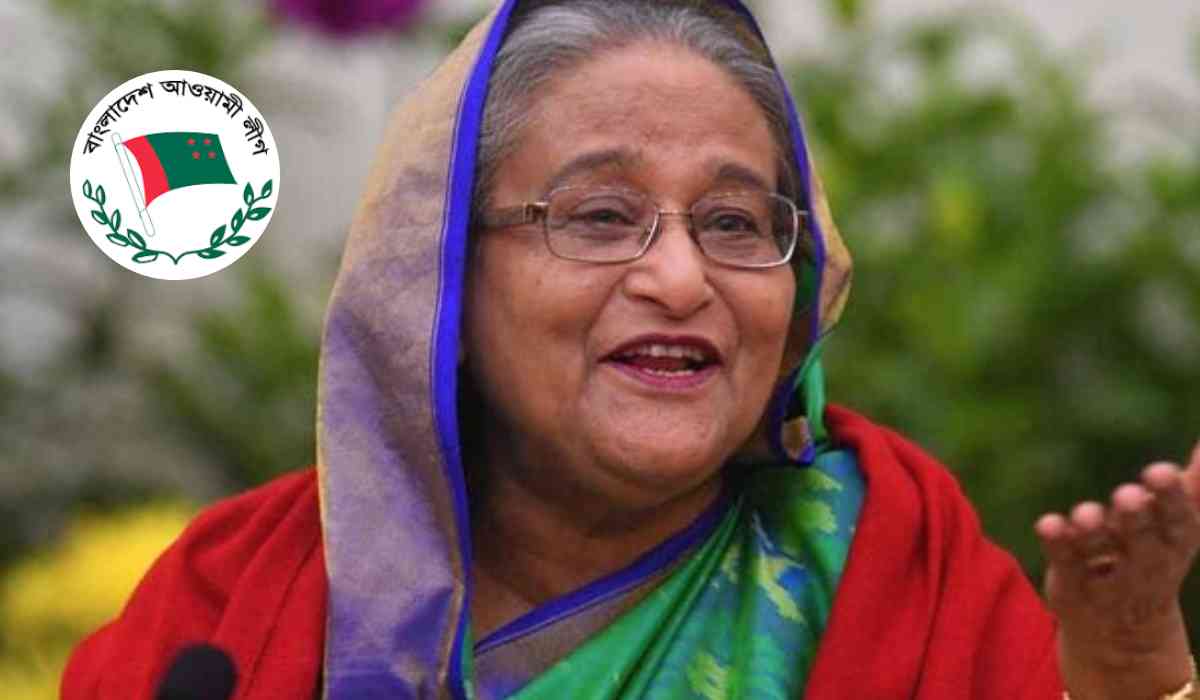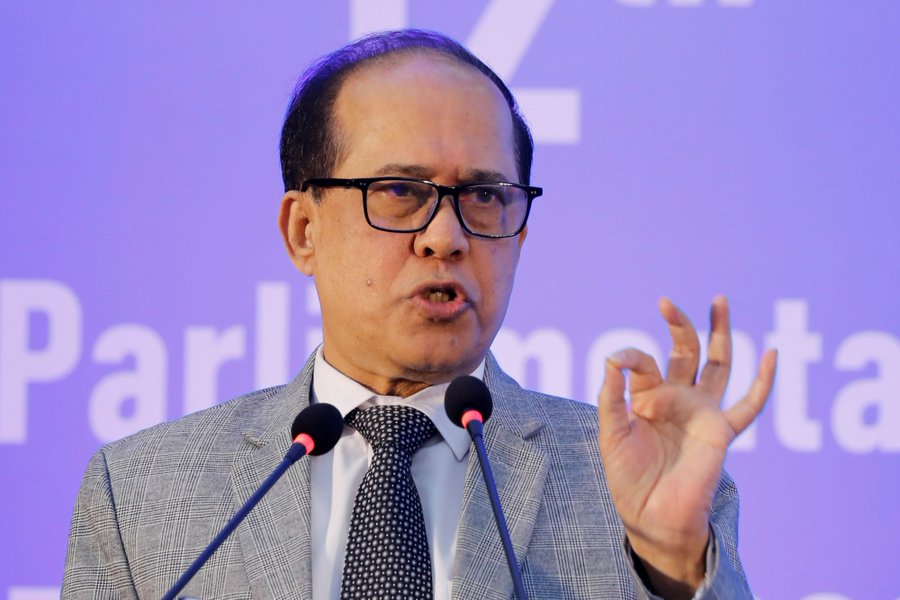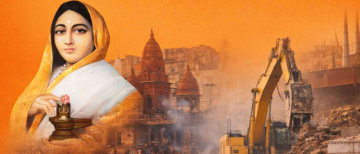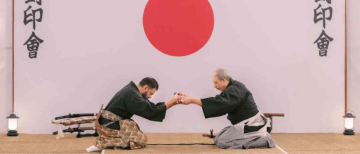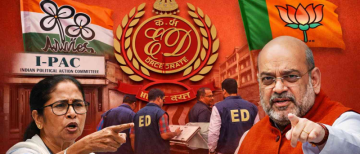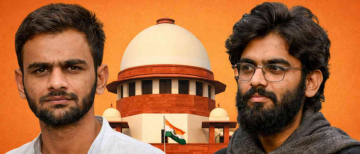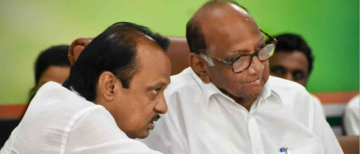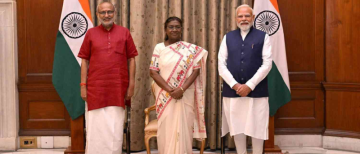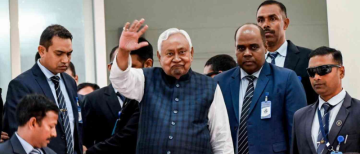Bangladesh PM Sheikh Hasina wins her fourth straight term as her party secures a two-thirds majority in the polls. The Bangladesh general elections were marred by sporadic violence and a boycott by the main opposition BNP and its allies.
After her Awami League party won two-thirds of the seats in the general elections, tainted by intermittent violence and a boycott by the main opposition BNP and its allies, Bangladeshi Prime Minister Sheikh Hasina secured a record fourth consecutive term on Sunday. Following a full day of voting on Sunday, Ms. Hasina's party was able to secure 200 seats out of the 300 available seats in parliament.
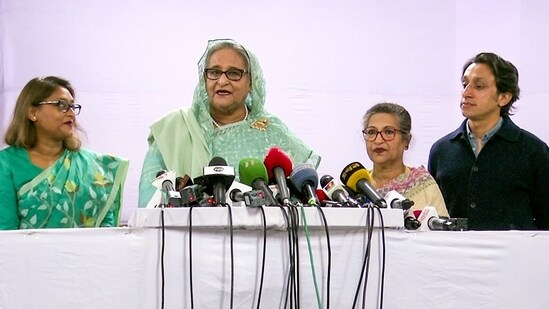
Bangladesh PM Sheikh Hasina
According to a spokesman for the election commission, "We can declare the Awami League winner using the currently available results, but the final announcement will be made after the end of the vote counting in the remaining constituencies." It is Ms Hasina's eighth election victory in Gopalganj-3 since 1986. Her nearest rival, M. Nizam Uddin Lashkar of the Bangladesh Supreme Party, only managed 469 votes, compared to her 249,965 votes. The 76-year-old leader, who has ruled the strategically important South Asian country since 2009, won an unprecedented fourth term in a row and a fifth term overall in the lopsided election that attracted little voter turnout.
Low voter turnout
Though Chief Election Commissioner Kazi Habibul Awal had earlier stated that the final count may alter the estimate, preliminary estimates put voter turnout at about 40%. Over 80% of voters participated in the 2018 general election. Officials and the mainstream media have documented at least 18 arson attacks nationwide since late Friday, with ten of them aimed at polling places, despite the generally peaceful voting process. On January 7, during Chattogram, Bangladesh's 12th general election, protesters confronted police.
Chief Election Commissioner Kazi Habibul Awal
The Bangladesh Nationalist Party (BNP), led by former prime minister Khaleda Zia, called the polls "fake" and announced that the party would be stepping up its anti-government campaign with a nonviolent public engagement program beginning on Tuesday. The BNP participated in the 2018 election after abstaining from the 2014 one. They abstained from voting this time. The election was also boycotted by fifteen other political parties. The low turnout, according to the party leaders, proved their boycott campaign was effective. They claimed that through this program, the right to vote would be established and that peaceful democratic protest programs would be expedited.
BNP strike:
Starting at six in the morning on Saturday and ending at six in the morning on Monday, the BNP is observing a 48-hour nationwide general strike. To signal the beginning of the end for what it refers to as a "fascist government," it had urged voters to boycott the election. A representative for the election commission had earlier stated that, aside from a few isolated acts of violence, 299 out of the 300 constituencies saw mostly peaceful voting. Due to a candidate's passing, the Commission decided to suspend voting in one seat. After voting, the election commission revoked the candidacy of the incumbent Awami League candidate in northeastern Chattanooga because he had "scolded and threatened" a police officer.
VIDEO | Bangladesh general elections 2024: Bangladesh Nationalist Party (BNP) workers and leaders protest in Dhaka against PM Sheikh Hasina-led government. pic.twitter.com/w9a5136Cuj— Press Trust of India (@PTI_News) January 6, 2024
Shortly after the polls opened, Prime Minister Hasina cast her ballot at the Dhaka City College polling place. Saima Wazed, her daughter, went with her. She claimed that democracy is not upheld by the opposition BNP-Jamaat-e-Islami alliance. "People will cast their votes however they please. And we succeeded in setting up that voting environment. She told reporters, "The BNP-Jamaat alliance has caused many incidents, including arson attacks."
India is a "trusted friend," Ms. Hasina stated in response to a query. "We have a lot of luck. India is a reliable friend. They backed us in our liberation war. Furthermore, they sheltered us after the military coup of 1975, which resulted in the deaths of our entire family—father, mother, brothers, and all—leaving only Hasina and her younger sister Rehana. Thus, we send our warmest regards to the Indian people," she informed reporters. Military officers killed Sheikh Mujibur Rahman, his wife, and their three sons in their home in August 1975. Since they were abroad, his daughters, Hasina and Rehana, were able to survive the purge. When asked if she thought the election would still be acceptable with the BNP boycotting it, Hasina replied that her duty was to the people. "This election matters to me, whether or not people accept it. Therefore, their acceptance by foreign media doesn't concern me. No matter what the terrorist party said or not," s said.
#WATCH | Dhaka: In her message to India, Bangladesh Prime Minister Sheikh Hasina says, ''You are most welcome. We are very lucky...India is our trusted friend. During our liberation war, they supported us...After 1975, when we lost our whole family...they gave us shelter. So our… pic.twitter.com/3Z0NC5BVeD— ANI (@ANI) January 7, 2024
"Unique" polls:
The opposition Jatiya Party is one of the 27 political parties that ran for office. The remaining individuals belong to the coalition led by the Awami League, which is known by experts as "satellite parties." The nation's Election Commission reports that 119.6 million registered voters were able to cast ballots at more than 42,000 polling places on Sunday. In addition to 436 independents, over 1,500 candidates representing 27 political parties were running in this election. The 12th general election was closely watched by more than 100 foreign observers, three of whom were from India. To maintain peace and order during the elections, more than 7.5 lakh members of security and law enforcement agencies were sent in. Sunday's polls, according to former Election Commissioner Brig Gen (retd) Sakhawat Hussain, were unlike any other in the last two elections. This time, candidates from the same party are running for office in the names of independents and dummies. Voters are consequently less engaged in the polls, according to Mr. Hussain. Thus, it's a special model selection. Everyone is aware of the election's outcome and who will prevail. Who will be on the opposition bench is the only unclear thing, he continued. Clement Nyaletsossi Voule, the Special Rapporteur for the United Nations, expressed his "deep dismay" at the oppressive atmosphere surrounding the polls in Bangladesh.
Sources: X (ANI, PTI, The Hindu)
Ⓒ Copyright 2023. All Rights Reserved Powered by Vygr Media.

